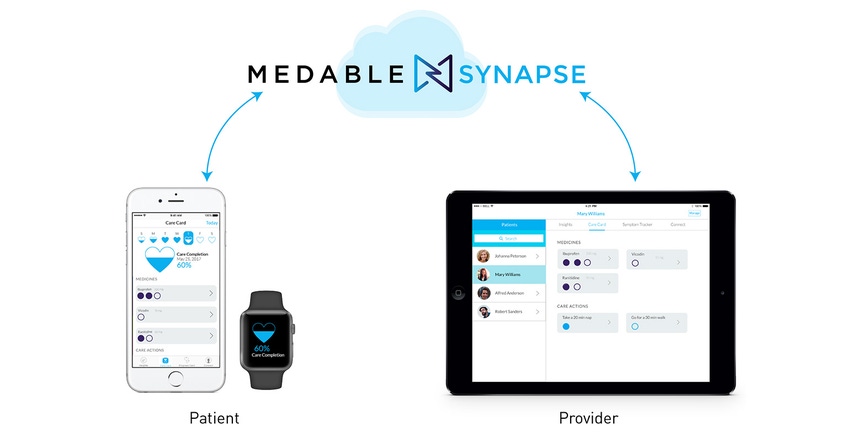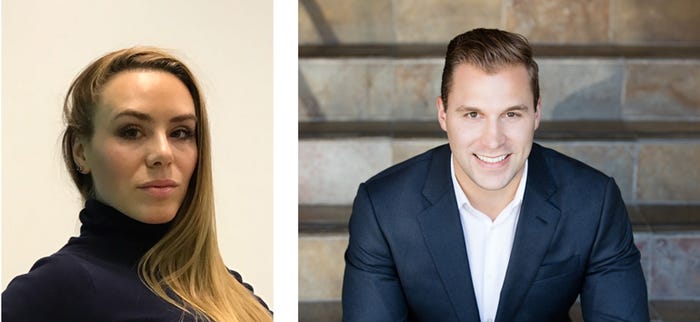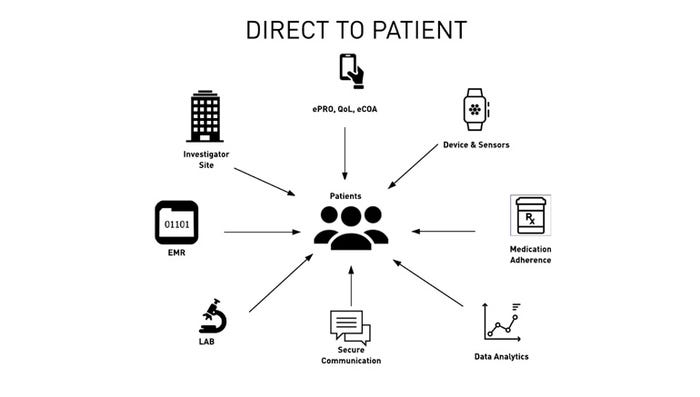Medable has recently hired a former IBM Watson Health director to help the company in its quest to digitize patient data.
August 19, 2017

Tyler Pugsley, former IBM Watson Health director, didn’t know that he was looking for a new job when he tuned into a podcast titled Digital Health Today in July. But that’s what happened after he heard an episode featuring Michelle Longmire, the CEO of the medical startup Medable. “The podcast host, Dan Kendall, later offered to introduce me to her, and we had lunch,” Pugsley recalled. Longmire showed him the company’s Axon app, which enables researchers to collect data from wearables, connected medical devices and mobile phones, and he was floored. “I was thinking: You gotta be kidding me. This is 1,000 times better than other technology I’ve seen,” Pugsley recounted.
It wasn’t long before Longmire offered him a role at the medical startup. “When I met Tyler and heard his vision of where we could go with it, and his understanding of the trends in the industry. I asked him, ‘Dude, is there any chance you are looking for a job?’” she said. “I thought, ‘This is a person who can accelerate our business.’”
[IoT Data & AI Summit demonstrates how the next generation of IoT and AI technologies will converge to unlock the intelligence of things. Get your ticket now.]
Pugsley got a formal offer the following Tuesday. “I signed it in about five minutes, and my first day was later on that week,” he remembered. “It was a no-brainer to me. I made the jump and never looked back.”

Founded in 2013, Medable was established to help healthcare organizations digitize patient data. “I look at it like it’s the Internet of Patients,” Longmire said.
How did she found a medical startup around the idea? “I am a dermatologist and was a studying autoimmune disease at Stanford. I saw that, both in dermatology and in my research, the context of how people live is a big driver in the clinical manifestation of disease.” While genetics plays a vital role, for many autoimmune diseases, environmental factors also matter. Yet factors like pollution levels and sun exposure have been historically difficult to capture in clinical research. “The concept for Medable came out of recognizing that,” Longmire said. “In clinical care and medical research, if we could create a digital representation of the patient and their environment over time, we could understand diseases better and draw better insights from clinical studies.”
While many connected medical devices and wearables have entered the market in recent years, Longmire found that it was often difficult for clinicians to scale such technologies broadly enough to improve clinical care and research at large. “So we decided to build a platform to help do that,” Longmire stated. “If a clinical trial manager or a doctor wants to use a cool new connected medical technology, we wanted to help them get data from that device into the electronic medical record and make sure they comply with HIPAA. We wanted to help them make that new technology scale,” she said. “If every time a doctor wants to use a cool new connected device, and they have to go and get a developer to build an app, the technology won’t take off. Delivering them at scale requires platform integration to enable clinical researchers to use them just as they use a stethoscope or a pipette.”

Making it easier for clinicians to deploy new digital technologies frees them up to spend more time with patients, Pugsley said, and it also promises to transform how clinical trials are performed. “In the traditional setup, patients go into a site every so often, whether it is weekly or every couple of months,” he explained. “You are getting these individual time points of measurements on the patients,” he said. We see connected technologies like wearables — and even Alexa — playing an important role in how patients continuously collect data in the real world.”
About the Author(s)
You May Also Like
.jpeg?width=700&auto=webp&quality=80&disable=upscale)
.png?width=700&auto=webp&quality=80&disable=upscale)



.png?width=300&auto=webp&quality=80&disable=upscale)
